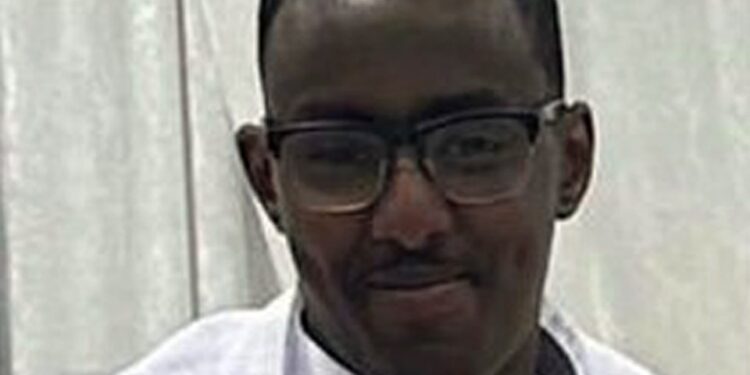A TEENAGE boy has been found guilty of murdering a man who named him in his dying breath after being fatally stabbed.
Sanchez Tate, 18, had attacked 21-year-old Mohamed Abdi Noor, who had blamed him for knocking over his motorbike.
The defendant denied murder and claimed he had acted in self-defence.
Following a trial at the Old Bailey a jury found him guilty of the charge on Tuesday.
Mr Abdi Noor had suffered a fatal stab wound to the chest during the incident last December 11 on Tufnell Park Road in Kentish Town, north London, where both men lived.
Emergency services were called to the scene as Tate ran off towards his home and was arrested soon after.
Prosecutor Catherine Pattison had said: “Before he lost consciousness, Mr Abdi Noor said ‘Sanchez’ and repeated it – meaning the name of the person who had stabbed him.”
Married motorcycle enthusiast Mr Abdi Noor was taken to hospital where he died early the next morning.
Ms Pattison told jurors: “The level of violence was out of all proportion for what was needed to rob someone.
“It has the hallmarks of targeted, if spontaneous, violence against a known individual, whatever lay behind it.”
The court heard that Tate and Mr Abdi Noor knew each other because they lived in the same road but they were not friends.
Mr Abdi Noor had a “passion for pedal cycles and motorbikes” and told his wife after an earlier incident allegedly involving Tate.
Ms Pattison said he had gone to check his motorbike in his estate parking lot and found it on the ground.
He asked some teenagers who had knocked it over and they pointed to Tate.
The prosecutor said: “Mr Abdi Noor told Mr Tate that he needed to pay for the damage – a scratch and some parts were damaged.
“Nothing else appeared to come of it. As it happened, Mr Abdi Noor took his motorbike to be repaired.
“The damage to the motorbike was still being repaired on the date Mr Abdi Noor died.”
Judge Mark Dennis KC adjourned sentencing until November 21 following the guilty verdict.
He told the defendant he needed more information about his “plainly rather troubled past”.










